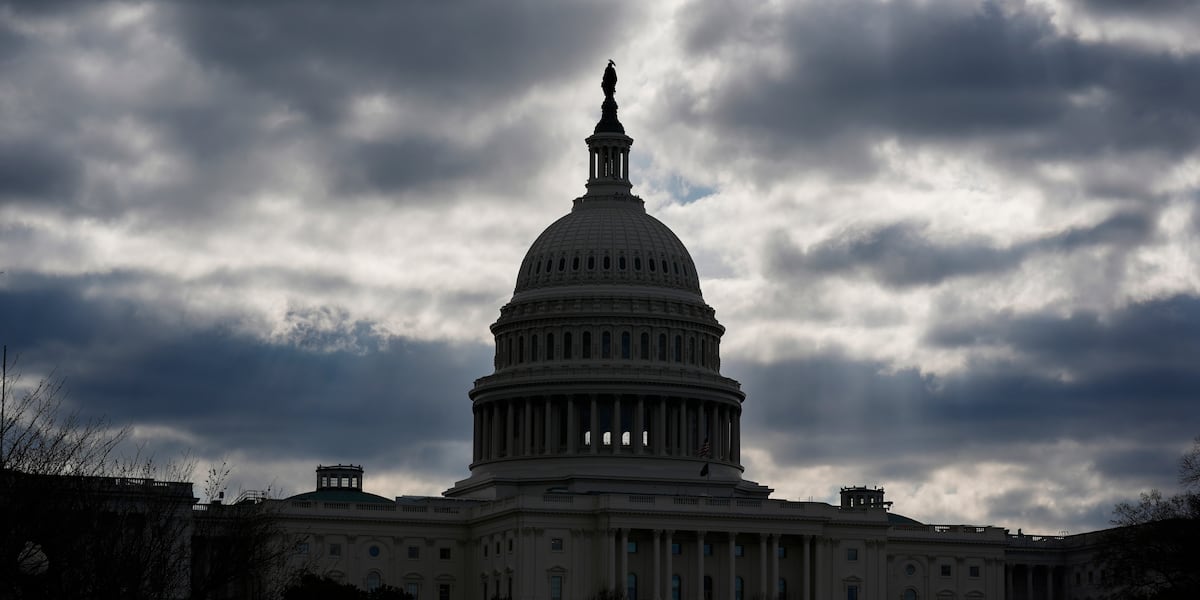- Kyiv to scrap tax exemptions as part of IMF deal
- Exemptions have helped economy to weather impact of war
- Move will boost tax revenues, says finance minister
- Says Kyiv monitoring moves around frozen Russian assets
Finance
Ukraine plans to restore pre-war tax system by July -Finance Minister
/cloudfront-us-east-2.images.arcpublishing.com/reuters/XC3KZ3A76NLR3NHXPNMPSAUSH4.jpg)
[1/5]Ignazio Cassis, Swiss Foreign Minister, Howard Graham Buffett, James Cowan, CEO of Halo Trust, Alex Lissitsa, CEO of the Industrial Milk Company, Yuliya Svyrydenko, First Deputy Prime Minister of Ukraine, and Denise Brown, United Nations official, attend the Ukraine Recovery Conference in London,…
LONDON/KYIV, June 22 (Reuters) – Ukraine plans shortly to reinstate government tax collection to pre-war levels in a push to comply with its IMF programme, scrapping exemptions and relief introduced since Russia’s invasion, Finance Minister Serhiy Marchenko told Reuters.
The move would generate extra government income of up to 10 billion hryvnia ($271 million) for the remainder of 2023 once Ukraine’s parliament has voted to restore it, Marchenko said in an interview late on Wednesday.
“We expect the restoration will be (voted on) at the end of June or the beginning of July,” said Marchenko, speaking on the sidelines of a two-day conference in London where Western donors have pledged billions of dollars more for Ukraine’s recovery.
“We can’t even cover our military expenditure with our taxes, but at least we can cover a part, and it gives us some space of manoeuvre.”
The plan is part of commitments Kyiv has agreed under a nearly $15.6 billion International Monetary Fund loan programme approved in early April. However, that pales in comparison to Kyiv’s funding needs which amount to billions of dollars.
Measures introduced to help Ukraine’s economy weather Russia’s invasion, launched on Feb. 24, 2022, have included lowering value-added tax on profits for some businesses and lower tax rates for some private entrepreneurs. It also cut some taxes and duties on fuel products.
They are all now expected to end.
Marchenko said the government would also push for customs reforms during the second half of the year, including the introduction of a shared database with European Union countries “to avoid illegal trades”. The minister did not elaborate.
RECOVERY EFFORTS
Ukraine said it needs to secure almost $7 billion for the next 12 months to finance recovery, as the war has destroyed homes, schools, hospitals and other critical infrastructure.
Prime Minister Denys Shmyhal, speaking in London on Thursday, said he was confident that Ukraine would receive that sum, based on pledges made at the donors’ conference.
The World Bank has estimated Ukraine’s reconstruction will cost at least $411 billion to cover damage suffered in the first year of the war – two times Ukraine’s pre-invasion GDP.
“We continuously discuss with donors and lenders how to move more rapidly from pledges to commitments in practical projects in Ukraine,” Marchenko said.
The government is also monitoring closely how proceeds from Russian assets could be used for reconstruction in the future.
“This money could be part of the solution” for reconstruction, he said, emphasising Kyiv’s desire for a swift resolution of the issue.
Republican and Democratic members of the U.S. Congress introduced legislation last week that would make it easier for Ukraine to fund its war by using seized and frozen Russian assets. The Congress has approved more than $100 billion in military, humanitarian and economic aid for Ukraine since February 2022.
Kyiv is also asking the Financial Action Task Force (FATF), the world’s financial crimes watchdog, to blacklist Russia at a meeting this week in Paris, a further step after the regulator suspended Moscow’s membership in February.
“We have provided facts and evidence for such a decision,” Marchenko said. “For us, if Russia is blacklisted, it will be a tremendous success.”
Russia’s Central Bank Governor Elvira Nabiullina said on Wednesday there were no technical reasons for Russia to be added to the FATF’s blacklist, and that any such step would be “politically motivated”.
($1 = 36.9250 hryvnias)
Reporting by Jorgelina do Rosario, editing by Karin Strohecker and Gareth Jones
Our Standards: The Thomson Reuters Trust Principles.

Continue Reading
Finance
Your money habits trace back to childhood, financial psychotherapist says. Here's how to fix them

Child saving money in a glass jar at home
Pinstock | E+ | Getty Images
Your relationship with money might seem random, but one expert says it offers clues about your childhood — and understanding this could help overcome toxic spending habits.
Vicky Reynal, a financial psychotherapist and author of “Money on Your Mind,” told CNBC Make It that there are psychological reasons behind our spending habits, and many of these attitudes stem from childhood experiences.
“Our emotional experiences growing up will shape who we become,” she said.
For example, someone who felt secure during childhood might feel that they deserve good things, and later in life may be more likely to negotiate a higher salary or enjoy the money they have, Reynal said. Whereas someone who experienced childhood neglect may grow up with low self-esteem and act this out through money behaviors.
This could include feeling guilty when spending money because they don’t feel they deserve good things, or splashing the cash to impress because they feel unworthy of attention.
“The little toddler that goes up to their parents to show them their scribble — how they get responded to will give them a message about how the world will respond to them,” Reynal added.
Scarcity or wealth
Reynal said “the money lessons we learn growing up” are largely shaped by whether we grew up in an environment of scarcity or wealth.
“To give you an example, growing up in scarcity, people that manage to move themselves out of that economic reality, and maybe in their own adult life manage to accumulate quite a bit of wealth, it’s quite common for them to struggle with what they call the scarcity mindset,” Reynal said.
This is a pattern of thinking that fixates on the idea that you don’t have enough of something, like money. A scarcity mindset means someone might struggle to enjoy the money they’ve earned and be anxious about spending it, Reynal added.
Alternatively, there are people who grew up with little but became wealthy, and are now very careless with money.
“They’re giving themselves everything that they longed for when they were little so they might go on the other extreme and start spending it quite carelessly, because now they want to give their children everything that their parents couldn’t give them,” Reynal added.
Stop self-sabotaging
The key to overcoming toxic spending habits is to stop self-sabotaging — a common behavior — according to Reynal.
“Often behind a pattern of financial self-sabotage, there are deep-seated emotional reasons, and it could range from feelings of anger, feelings of un-deservedness, to maybe a fear of independence and autonomy,” she said.
To identify these, you first have to determine what your financial habits and inconsistencies are, Reynal said, giving an example of someone who might overspend in the evenings.
“Is it boredom? Is it loneliness? What is the feeling that you might be trying to address with the overspending?” she said.
“That’s already giving you a clue as to what you could be doing different. So, if it’s boredom, what can you replace this terrible financial habit with?”
Reynal said she had a young client who would always run out of money within the first two weeks of the month. She asked them: “What would happen if you were financially responsible?”
The client revealed that they feared risking their relationship with their mother because every time they ran out of money, they called their mother to ask for more.
“Their parents had divorced a long time ago, and the only time they ever spoke to their mother was to ask for money,” Reynal said. “They had a vested interest in being bad with money, because if they were to become good with money, then they had the problem of: ‘I might not have an excuse to call mother anymore and I don’t know how to build that relationship again’.”
The financial psychotherapist recommended being “curious and nonjudgmental” when considering the root of bad spending behavior.
“So sometimes asking ourselves: “What feelings would I be left with if I actually didn’t self-sabotage financially, or if I weren’t so generous with my friends?’ That can start to reveal the reason why you might be doing it,” she added.
Finance
Downing & Co. Elevates Financial Legacy With Expert Estate Planning Services in Portland

Portland-based CPA firm helps clients safeguard their wealth and secure their family’s future with comprehensive estate planning services.
PORTLAND, OREGON / ACCESSWIRE / December 26, 2024 / In a city renowned for its entrepreneurial spirit and thriving businesses, Downing & Co. is taking a bold step forward in helping Portland residents protect what matters most: their legacy. The firm offers specialized estate planning services, designed to ensure their clients’ wealth is preserved and passed down seamlessly to future generations.
With over five decades of experience in financial strategy, Downing & Co. brings a trusted, proactive approach to estate planning. As Portland’s go-to CPA firm, they’ve built a reputation for delivering personalized solutions that go beyond typical financial management. Their estate planning services focus on reducing tax burdens, avoiding costly mistakes, and ensuring assets are distributed according to the client’s wishes.
“Estate planning isn’t just about financial protection-it’s about preserving your life’s work and values for the people you care about,” said Tim Downing, Managing Principal at Downing & Co. “Our goal is to provide peace of mind by ensuring that clients’ wealth stays where it belongs-within their family and community.”
Why Estate Planning Matters in Portland
For high-net-worth individuals and small business owners, estate planning is critical in Portland’s competitive economic landscape. Without a clear plan, families risk losing up to 40% of their inheritance to taxes and government regulations. By offering expert guidance and strategic structuring, Downing & Co. ensures clients avoid these pitfalls while safeguarding their financial legacy.
Key benefits of Downing & Co.’s Estate Planning Services include:
-
Minimizing Estate Taxes: Advanced planning can reduce the tax burden on your estate, ensuring more of your wealth is retained by your heirs.
-
Efficient Wealth Transfer: Clear strategies streamline the process of passing on assets, reducing legal challenges and delays.
-
Preserving Family Legacies: Customized solutions ensure your assets align with your values, supporting the people and causes you care about most.
-
Proactive Risk Mitigation: Estate plans address potential legal and financial risks, protecting your wealth against unforeseen challenges.
A Holistic Approach to Financial Security
Downing & Co.’s Estate Planning Services are part of a broader commitment to comprehensive financial management. Their holistic approach integrates tax planning, wealth preservation, and business advisory services to create a seamless strategy that addresses every aspect of a client’s financial well-being.
Finance
Stock market today: Dow, S&P 500, Nasdaq fall after Christmas break
US stocks fell Thursday as trading resumed after the Christmas holiday, as Wall Street digested one of the only economic data points of the week.
The S&P 500 (^GSPC) was down 0.3% while the the tech-heavy Nasdaq (^IXIC) declined 0.3%. The Dow Jones Industrial Average (^DJI) lost 0.4%, leading the way down.
Meanwhile, bitcoin (BTC-USD) slumped, falling below the $96,000 level as volatile trading continued. Crypto-linked stocks like MicroStrategy (MSTR) tracked the declines.
Markets looked to be struggling in a bid to extend the start of the “Santa Claus rally,” which kicked off with a bang on Tuesday. All three major indexes rose around 1%. The S&P 500 (^GSPC) and Nasdaq Composite (^IXIC) are within striking distance of their records after clawing back gains from a Fed-fueled dive last week.
As Wall Street saunters back from its holiday break, the normally routine release on weekly jobless claims took more of a spotlight than usual, as the only piece of the jobs puzzle on the docket this week.
Labor Department data released prior to the market open showed weekly jobless claims fell to 219,000 compared with expectation of 223,000. However continuing claims surged to 1.19 million in the week ending December 14 to the highest level since November 2021, in a sign the labor market may be cooling.
LIVE 1 update
-
/cdn.vox-cdn.com/uploads/chorus_asset/file/24924653/236780_Google_AntiTrust_Trial_Custom_Art_CVirginia__0003_1.png)
/cdn.vox-cdn.com/uploads/chorus_asset/file/24924653/236780_Google_AntiTrust_Trial_Custom_Art_CVirginia__0003_1.png) Technology6 days ago
Technology6 days agoGoogle’s counteroffer to the government trying to break it up is unbundling Android apps
-

 News7 days ago
News7 days agoNovo Nordisk shares tumble as weight-loss drug trial data disappoints
-

 Politics7 days ago
Politics7 days agoIllegal immigrant sexually abused child in the U.S. after being removed from the country five times
-

 Entertainment1 week ago
Entertainment1 week ago'It's a little holiday gift': Inside the Weeknd's free Santa Monica show for his biggest fans
-

 Lifestyle1 week ago
Lifestyle1 week agoThink you can't dance? Get up and try these tips in our comic. We dare you!
-
/cdn.vox-cdn.com/uploads/chorus_asset/file/25672934/Metaphor_Key_Art_Horizontal.png)
/cdn.vox-cdn.com/uploads/chorus_asset/file/25672934/Metaphor_Key_Art_Horizontal.png) Technology2 days ago
Technology2 days agoThere’s a reason Metaphor: ReFantanzio’s battle music sounds as cool as it does
-

 Technology1 week ago
Technology1 week agoFox News AI Newsletter: OpenAI responds to Elon Musk's lawsuit
-

 News3 days ago
News3 days agoFrance’s new premier selects Eric Lombard as finance minister


















